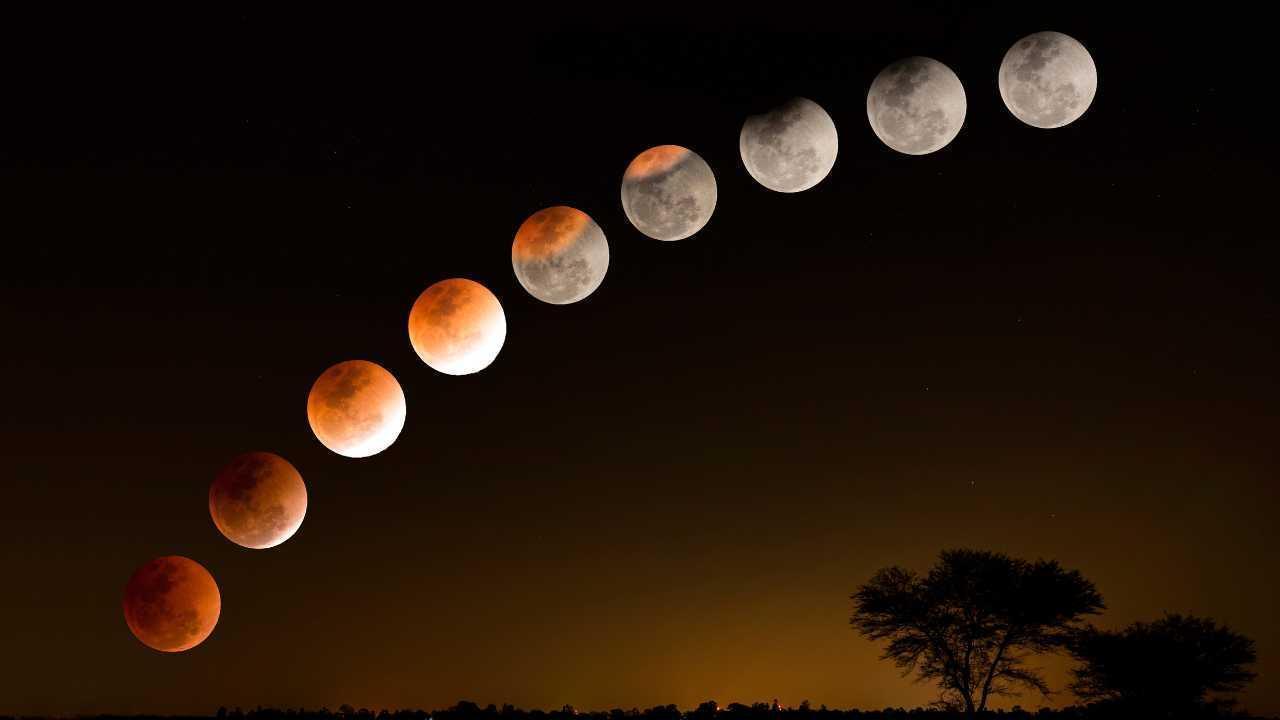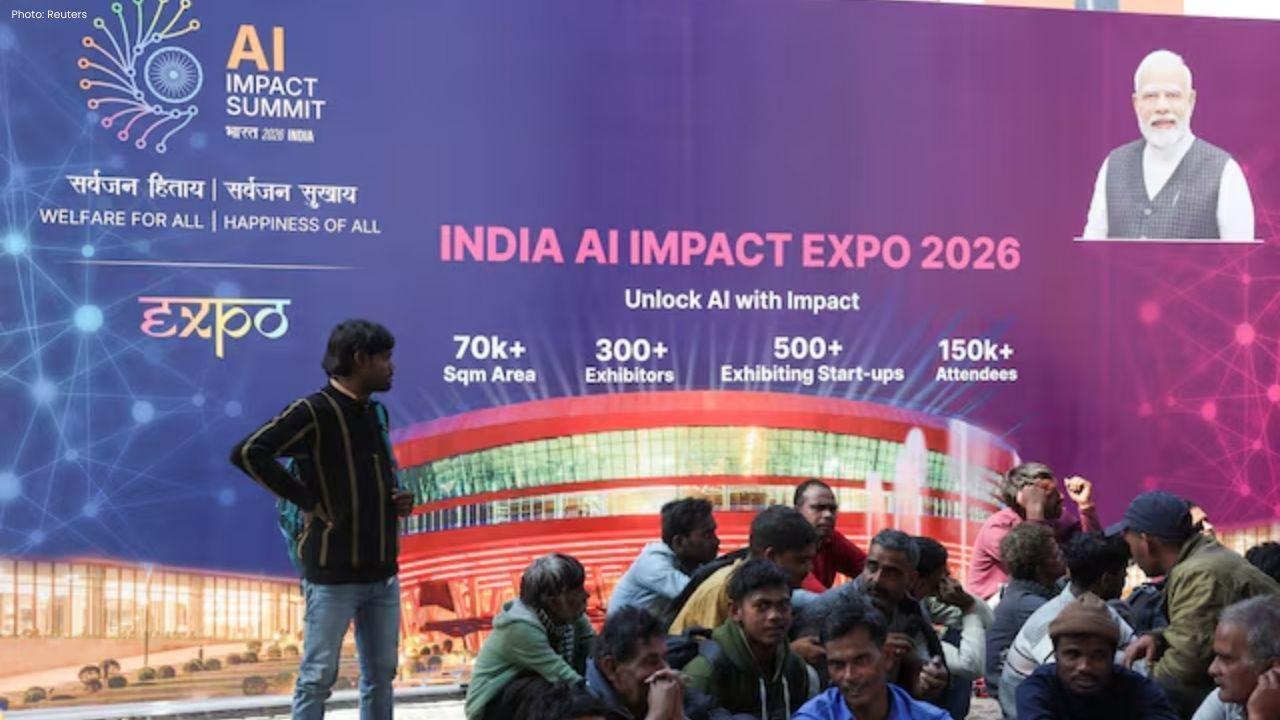
Post by : Samir Qureshi
Lunar eclipses have always fascinated people across the world. In many places, they are seen purely as astronomical events, explained by science and observed with curiosity. But in India, lunar eclipses carry layers of cultural meaning, spiritual belief, and ritual practice. For centuries, they have been more than just celestial alignments—they are moments that connect mythology, tradition, and human experience.
In this article, we will explore how Indians perceive lunar eclipses through cultural stories, spiritual practices, and modern perspectives.
Before diving into traditions, it is important to understand the science behind lunar eclipses.
A lunar eclipse occurs when the Earth comes between the Sun and the Moon, casting a shadow that darkens the Moon’s surface. Depending on the alignment, it can be a partial lunar eclipse (only part of the Moon is shadowed) or a total lunar eclipse (the entire Moon appears red, often called a “blood moon”).
Scientifically, there is nothing harmful about watching a lunar eclipse. It does not emit dangerous rays, unlike a solar eclipse. Still, in India, the cultural and spiritual understanding goes far beyond astronomy.
In Indian mythology, eclipses are often explained through the story of Samudra Manthan (the churning of the cosmic ocean). According to legend, the gods and demons churned the ocean to obtain amrita (the nectar of immortality).
A demon named Rahu disguised himself and drank some nectar. The Sun and Moon informed Lord Vishnu, who cut off Rahu’s head with his discus. Since Rahu had already tasted the nectar, his head became immortal. From that day, Rahu and his body (known as Ketu) chase the Sun and Moon. When Rahu catches them, an eclipse occurs.
This tale explains why eclipses are often seen as times of cosmic imbalance or disruption in India.
One of the most common traditions is fasting during a lunar eclipse. Many families avoid cooking and eating, believing that food prepared during the eclipse becomes impure. Some households even discard food made before the eclipse and cook fresh meals afterward.
This practice is linked to the idea that cosmic energies during an eclipse affect digestion and well-being. Whether or not one believes this literally, the tradition is deeply rooted in Indian households.
In many parts of India, pregnant women are advised to stay indoors during a lunar eclipse. They are told not to use sharp objects or perform certain tasks, with the belief that negative energies may harm the unborn child.
While science does not support these claims, the practice reflects a cultural concern for protection during vulnerable times.
During an eclipse, many temples close their doors. Devotees avoid offering prayers until the eclipse is over. Once the eclipse ends, temples reopen with special purification rituals, and homes are cleansed with holy water (Ganga jal).
For spiritually inclined people, eclipses are seen as powerful times for chanting mantras, meditating, or practicing self-reflection. The disruption in cosmic harmony is believed to amplify spiritual energy, making it a good time for prayer and inner focus.
After the eclipse, families perform purification rituals such as:
Bathing immediately after the event.
Cleaning the home and kitchen.
Sprinkling holy water around the house.
Preparing fresh food.
These rituals symbolize renewal and a return to balance after the temporary disruption caused by the eclipse.
From a scientific lens, lunar eclipses are entirely safe and natural. They occur at predictable times and follow the laws of planetary motion.
No harmful rays: Unlike solar eclipses, lunar eclipses do not harm the eyes and can be viewed without protection.
Astronomical significance: They provide opportunities for scientists and sky-watchers to study the Moon’s surface, atmosphere, and Earth’s shadow.
Still, the cultural layer adds a dimension of meaning that pure science does not address.
In rural areas of India, traditions around lunar eclipses remain strong. Families often follow rituals strictly, from fasting to purification. In cities, however, attitudes are more mixed. Some people continue observing rituals out of respect for elders, while others treat eclipses as purely scientific events.
Younger Indians often approach eclipses with curiosity, watching them as astronomical spectacles while still acknowledging the traditions of their families. Many people adopt a middle path—appreciating science while maintaining cultural practices symbolically.
Even in a modern age of space exploration and scientific education, eclipse traditions remain meaningful for many reasons:
Cultural identity: Rituals connect people to their heritage and community.
Psychological comfort: Practices like fasting or cleansing give people a sense of control during unusual cosmic events.
Spiritual reflection: Eclipses create a pause in daily life, offering space for mindfulness and introspection.
Generational continuity: Observing rituals keeps traditions alive, passed down from elders to younger members of the family.
A lunar eclipse is both a scientific phenomenon and a cultural event in India. While astronomy explains the mechanics of Earth’s shadow covering the Moon, traditions rooted in mythology and spirituality continue to shape how people respond.
For some, eclipses are moments of caution and ritual observance; for others, they are opportunities for meditation or simply for sky-gazing. What makes the Indian perspective unique is the way it blends science, myth, and spirituality, creating a rich tapestry of meaning that continues to evolve with time.
Published by GCC News 24, this article shares cultural and spiritual views on lunar eclipses for informational purposes only, not as scientific or medical advice.










Top AI Leaders and World Leaders Gather in Delhi for India AI Summit 2026
India holds its first global AI Impact Summit in Delhi with top AI CEOs, world leaders, and 250,000

Sharjah International Education Summit Concludes 5th Edition Successfully
Global education leaders gathered in Sharjah to shape sustainable, inclusive, and technology-driven

RMS Signs MoU with Japan’s Shonan Kamakura General Hospital
The agreement aims to strengthen Bahrain–Japan healthcare cooperation through training, research, an

Shaikh Mohammed bin Salman Opens 52nd Bahrain Annual Fine Arts Exhibition
The 52nd edition of the Bahrain Annual Fine Arts Exhibition was inaugurated at Bahrain National Muse

Crown Prince of Bahrain Concludes Private Visit to Oman
HRH Prince Salman bin Hamad Al Khalifa departs Muscat after completing a short private visit to the

Veteran UAE Photographer Ramesh Shukla Passes Away, Leaving Behind a Lasting Legacy
Ramesh Shukla, the photographer behind the iconic image of the UAE’s founding, passed away on Februa